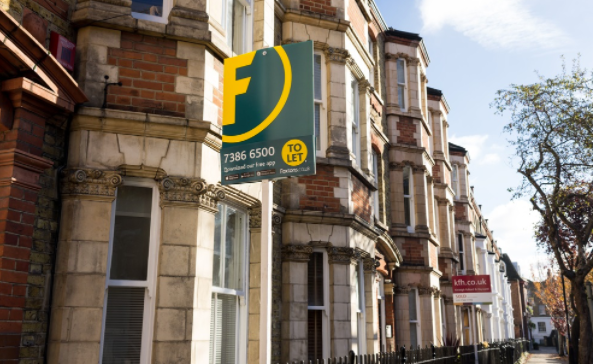Cast your mind back to 1996.
Dolly the sheep is the first mammal to be cloned. Prince Charles and Princess Diana announce their divorce. England host the European Football Championships and, of course, the lads from Take That went their separate ways for the first time.
In London, the average worker earned approximately £22,000 per year. Prices were relatively steady in the housing market following the recession in 2008, and the average house cost around £79,000 – four times a person’s annual salary.
How times have changed
Fast forward to 2016 and things are significantly different. The average house price now stands at a whopping £488,908, a 518% increase from 1996, and first-time buyers can expect to pay a deposit of £96,000.
Perhaps even more shocking is the correlation between the house price increase and the average wage increase. A person working in the capital today earns approximately £36,000, which is an increase of just 66% from 1996. Compare that to the 518% increase in house prices and it’s easy to see the disparity in affordability.
‘Generation Rent’
Unsurprisingly, such a large rate of inflation over the past 20 years has impacted heavily on the city’s residents. In 2001, figures show that just 15% of Londoners rented their property, and the likelihood was that after a few years you’d be able to save up enough to afford a small flat.
These days, approximately one in three of the capital’s residents rents, with many believing that purchasing a house in the capital is getting further and further out of reach.
This has had a clear impact on London’s demographic: there is still a large influx of young professionals, but there are now more and more people in their 30s and 40s choosing to leave the capital in order to secure a more affordable property.
How long the prices can keep rising for, only time will tell. It’s certainly a good time for those residents of London who have managed to pay off most, if not all, of their mortgage.
With just under six weeks to go until the big day, it’s safe to say that the festive season is now well and truly upon us!
And despite our best intentions to put away enough money to cover all the extra expenses – presents, food, drink, decorations, tree and turkey – it’s really difficult to anticipate the total cost, particularly if you’re catering to a fairly large family.
According to international internet-based market research firm YouGov, the average British household will spend a whopping £796 on Christmas this year. That’s a lot of mince pies!
Considering a Christmas loan?
It’s no surprise that we hear from so many people around this time of year who are in need of a little extra cash during the Christmas holidays and as we enter the new year.
If funds are tight, a secured Christmas loan through Evolution Money could prove to be an excellent solution. Our loans are tailor-made to suit your personal requirements and start at £1,000. Even if you don’t have a spotless credit history, our secured loan experts take into account your whole financial situation before making a decision.
If you’re worried about your spending this Christmas then there are plenty of things to keep your bank balance in check. Have a read of this article we recently put together for some quality saving tips.
Remember the old saying: when America sneezes, the rest of the world catches a cold.
Well, with Donald Trump now due to take his seat in the White House this coming January, the global economy has its tissues ready for a period of economic and financial uncertainty.
It remains to be seen how the relationship and exchange rate between the US and Britain will be affected in the long run – whether Trump seeks to make good on the ‘special relationship’ he’s spoken about, or maintain his stance against American free-trade policies.
But in similar circumstances to the UK’s decision to leave the EU earlier this year, we’ve already seen the value of the pound fluctuating in response to this week’s election results.
Planning a trip to the US soon?
Sterling is currently performing strongly against the dollar, so if you’re planning a trip to the US in the near future then now could be a prime time to get your pounds changed into dollars.
The same goes for holidaymakers who are planning a trip to Mexico in the near future. The pound has strengthened by nearly 10% against the Mexican peso in the past few days, so getting your money exchanged sooner rather than later looks like a good option.
If you’re keen to get the best value for your money, shop around for the best rates and make sure you do so in plenty of time. Leaving currency exchange until the last minute (such as at the airport) is a surefire way to lose value for your money.
For many families in Britain, the prospect of Christmas goes beyond spending quality time with family; it’s also very expensive.
When you consider the accumulative cost of food, drinks, cards and decorations, it’s easy to see why many people quickly find themselves in debt by the turn of the new year. That’s not to mention the price of those ‘must-have’ presents, which seems to be on the rise every year.
Not to worry – Evolution Money is here to help!
The words ‘festive’ and ‘frugal’ are rarely used in the same sentence, but that’s not to say it’s impossible to enjoy the benefits of a budgeted Christmas. Here are our top five tips to save yourself money throughout the festive period…
-
Start saving from Halloween (or before!)
Those who rely solely on December’s payslip to fund their entire Christmas splurge are definitely asking for trouble.
If you want to go all out without sacrificing too many beloved frills then it always pays to get ahead with your Christmas shopping. Buy and stash what you can in November (or even October) in order to split the cost between two or three pay packets.
-
Agree your limits
As the conversation with friends, family and work colleagues turns towards the upcoming Christmas break, start planting the seed of expectation. For example, many couples with children choose to operate a ‘kids only’ rule – or at least set a fairly modest limit to spend on each other.
Secret Santa doesn’t have to be the sole preserve of the workplace either; if you’re lucky enough to have a sizeable group of friends then this can cut down the cost of getting gifts for everyone. And rather than picking up a bog-standard £20 book from the Waterstones bestseller list, get creative with £5!
Remember, it really is the thought that counts.
-
Gather your vouchers
Thinking of a perfect time to use all those Tesco Clubcard or Sainsbury’s Nectar points that you’ve accrued throughout the year? Christmas is it.
For many loyalty schemes, it pays off to convert your points into vouchers first instead of simply cashing them all in at the till in one go. These vouchers are ideal to compensate for the extra money that every family is likely to spend on all that lovely food and drink.
-
Choose your supermarket wisely
While you may not think twice about shopping at Tesco, Asda or Sainsbury’s for the rest of the year, have you ever stepped foot into Lidl or Aldi? For quality fruit, veg and meat produce, the price difference can be quite remarkable. That includes turkey!
Although all supermarkets will literally be teeming with special offers in the build up to Christmas, it’s probably best off to give Waitrose or M&S a miss if you’re looking to keep your shopping bill down.
-
The end of year clearout
While you’re already up in the loft pulling down bags full of tinsel and old decorations, take note of what items you may be prepared to part with: clothes, electronics equipment, that old telescope that hasn’t been used since 2006.
It’s no secret that websites like eBay are a prime market for selling on your unwanted goods. Once you get into the habit of uploading your listings (which can now be done quickly on your mobile phone) it could even become a fairly regular source of extra cash.
Representative 22.93% APRC variable.
For a typical loan of £26,600 over 180 months with a variable interest rate of 19.56% per annum, your monthly repayments would be £484.00. This includes a Product Fee of £2,660.00 (10% of the loan amount) and a Lending Fee* of £763.00, bringing the total repayable amount to £87,030.00. Annual Interest Rates range between 11.7% to 46.5% (variable). Maximum 50.00% APRC. *Lending Fee varies by country: England & Wales £763, Scotland £1,051, Northern Ireland: £1,736.
Think carefully before securing debts against your home may be repossessed if you do not keep up repayments on your mortgage or any other loan secured against it. If you are thinking of consolidating existing borrowing, you should be aware that you may be extending the terms of the debt and increasing the total amount you repay.







